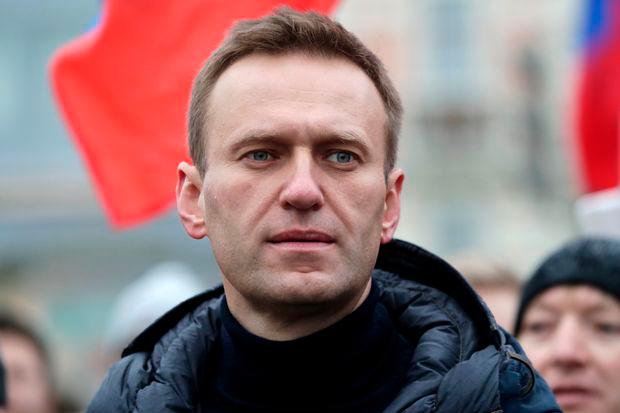WASHINGTON: US President Joe Biden’s administration is preparing to impose sanctions on Russia for the poisoning and imprisonment of Kremlin critic Alexey Navalny (pix), CNN reported Monday.
Citing two administration officials, CNN wrote that the United States will coordinate with the European Union to determine what the sanctions will entail and their exact timing.
According to one official, a potential option is an executive order that would trigger sanctions on Russia for repeated attacks on US democracy, including the SolarWinds cybersecurity hack and placing bounties on US soldiers in Afghanistan, CNN wrote.
The sanctions would be Biden’s first on Russia, and would be a marked departure from his predecessor Donald Trump’s approach to dealing with Moscow.
Trump was often accused of taking a soft line towards Russian counterpart Vladimir Putin, particularly during their 2018 summit in Helsinki when he backed Putin’s claim that Moscow didn’t interfere in the 2016 US election -- despite American intelligence agencies pointing to the contrary.
The European Union approved sanctions on four senior Russian officials earlier Monday, as UN human rights experts called earlier Monday for an international probe into Navalny’s poisoning and his immediate release.
The EU sanctions are on four justice and law enforcement officers involved in Navalny’s detention. The four are the first individuals to be targeted under the EU’s new human rights sanctions regime, which came into effect in December. They will be banned from travelling to the EU and any assets held there will be frozen.
Meanwhile, Agnes Callamard, the UN’s special rapporteur on extrajudicial, summary and arbitrary executions, and Irene Khan, the top expert on freedom of opinion and expression, insisted on the need to ensure accountability for Navalny’s “sinister poisoning.”
They demanded his “immediate release” from a Russian penal colony, where he was transferred last week from a Moscow prison.
Navalny was jailed last month after returning to Moscow from Germany, where the 44-year-old had spent months recovering from a poisoning with a banned nerve agent he blames on Putin. The Kremlin denies it was behind the attack.
The imprisoning of Putin’s best-known opponent sparked nationwide protests that saw thousands of demonstrators detained and triggered calls in the West for Navalny’s release. — AFP














